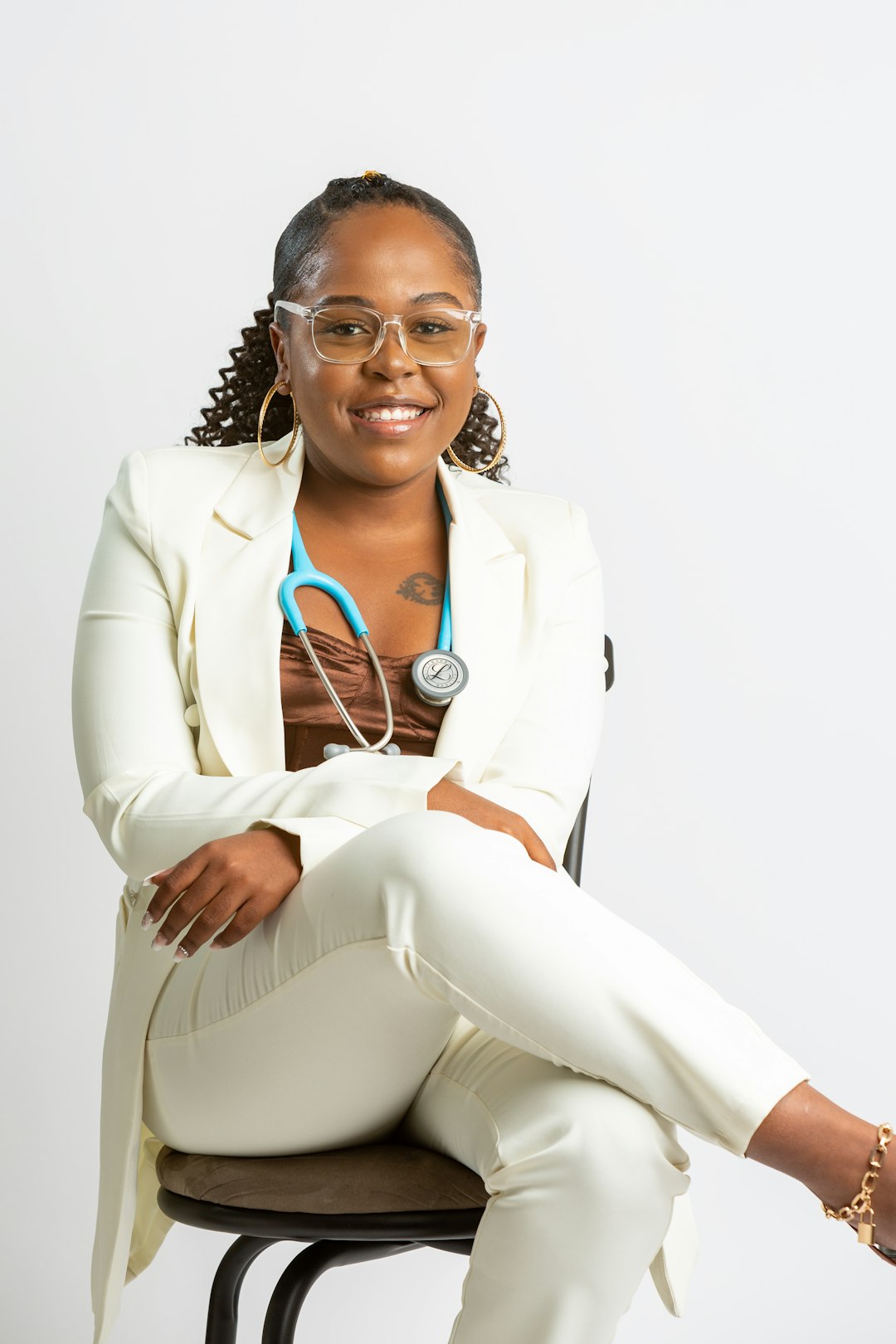Doctor sexual assault cases in Georgia significantly impact patient trust and healthcare delivery. Doctor attorneys play a crucial role, interpreting complex laws, representing victims and accused practitioners, and ensuring justice. Recent trends highlight the need for updated regulations and public awareness. A robust legal framework, support systems, and education aim to rebuild trust through transparency and accountability. Doctor attorneys advocate for survivor care and policies preventing future incidents, fostering a culture of ethical practices within healthcare institutions.
Patient trust is a cornerstone of healthcare delivery, yet the issue of doctor sexual assault casts a dark shadow over this relationship. In Georgia, where doctor attorneys play a crucial role in navigating legal complexities, the impact on patient confidence cannot be overlooked. This article delves into the profound consequences of such assaults, examining how they erode trust and affect patients’ willingness to seek medical care. We will explore strategies to mitigate these effects, highlighting the collective responsibility of healthcare providers, legal experts, and policymakers to ensure a safe and supportive environment for all Georgians seeking medical treatment.
Understanding Doctor Sexual Assault in Georgia: Legal Framework

In Georgia, doctor sexual assault cases have garnered significant attention due to their profound impact on patient trust and healthcare delivery. The legal framework surrounding these incidents is complex, with various laws and regulations designed to protect patients and hold perpetrators accountable. Understanding this landscape is crucial for both victims seeking justice and doctor attorneys in Georgia who must navigate these delicate matters.
Georgia law defines sexual assault as any unwanted sexual contact, including non-consensual touching or penetration, and it extends to situations where a healthcare provider abuses their position of power over a patient. The state has implemented stringent guidelines for consent, emphasizing informed consent based on clear communication between doctor and patient. Any deviation from this standard can lead to legal repercussions. Doctor attorneys in Georgia play a pivotal role in interpreting these laws, ensuring fair representation for both sides. For instance, a case where a patient accuses their doctor of sexual misconduct would require meticulous examination of the evidence, including medical records, witness testimonies, and expert opinions, to ascertain whether the actions constituted assault as per the law.
The legal process involves extensive investigations, with law enforcement and medical board officials conducting thorough inquiries. Victims may pursue criminal charges or file civil lawsuits for damages. Doctor attorneys in Georgia assisting accused practitioners must possess a deep understanding of medical ethics and legal precedents related to patient-doctor relationships. They must also be adept at challenging evidence and testimonies while upholding their client’s professional reputation. Conversely, representing victims involves advocating for their rights, ensuring they receive appropriate support and compensation. This often includes collaborating with mental health professionals to assess the psychological impact of such traumatic experiences.
Data from recent years indicates a growing number of doctor sexual assault cases in Georgia, reflecting a heightened awareness among patients and a determination to address these issues. As the legal framework continues to evolve, doctor attorneys must stay abreast of changing regulations, case law interpretations, and public expectations. This ensures they provide the best possible service to their clients while upholding the integrity of the healthcare system in Georgia.
Patient Trust Erroded: Impact on Healthcare Relationships

The impact of doctor sexual assault on patient trust in Georgia is a profound concern within the healthcare community. When patients experience or witness such incidents, it erodes the fundamental trust between caregiver and care recipient, disrupting the very fabric of the physician-patient relationship. This breach can have long-lasting consequences for both individuals and the broader healthcare system. A study by the National Institute of Health (NIH) revealed that nearly 1 in 4 women and 1 in 20 men in the US have experienced sexual harassment or assault, including within medical settings. In Georgia, where doctor attorneys play a crucial role in addressing these issues, the impact on patient trust is significant.
The relationship between patients and doctors is built on vulnerability. Patients rely on healthcare professionals for their well-being and safety, trusting them to provide care with integrity and respect. When this trust is violated, it can lead to a range of negative outcomes. Many survivors of medical misconduct experience anxiety, depression, and post-traumatic stress disorder (PTSD). They may avoid future medical care, delaying or foregoing necessary treatments. For instance, a patient who experiences sexual assault by their doctor might become reluctant to undergo routine check-ups or specialist consultations, jeopardizing their health. This hesitation can exacerbate existing conditions or lead to the discovery of new issues at later, more critical stages.
Georgia, with its robust healthcare network and dedicated doctor attorneys, is taking steps to address these challenges. Legal avenues and support systems are in place to help survivors seek justice and accountability while also encouraging open dialogue about prevention strategies. Educating both patients and medical professionals about consent, boundaries, and reporting mechanisms is vital. Doctor attorneys in Georgia play a key role in facilitating these discussions, ensuring that healthcare institutions implement robust policies and training programs to prevent future incidents. By fostering a culture of transparency and accountability, the state aims to rebuild and strengthen patient trust, creating a safer, more supportive healthcare environment for all Georgians.
Support Systems for Survivors: Resources in Georgia

In the wake of doctor sexual assault allegations, Georgia faces a crucial task: rebuilding patient trust while ensuring survivors have robust support systems. The impact on public confidence cannot be overstated, especially considering healthcare’s central role in people’s lives. When patients feel betrayed by their trusted medical professionals, it erodes faith in the system as a whole. This crisis demands immediate attention and targeted interventions to assist victims and deter future incidents.
Georgia has taken initial steps to address this issue, including enacting laws that mandate reporting and establish protocols for investigating allegations. However, survivors often require more than legal recourse. Access to counseling services, medical care, and financial assistance is vital for their healing process. Doctor attorneys Georgia play a critical role in advocating for these resources, guiding survivors through complex legal systems while ensuring they receive the comprehensive support needed. Organizations like the Georgia Sexual Assault Legal Institute offer free services, providing a safety net for those who’ve experienced such trauma. These initiatives are essential steps toward recovery and can significantly influence a survivor’s ability to rebuild their life.
Practical support extends beyond legal aid. Community-based organizations and government agencies must collaborate to create multidisciplinary teams that address survivors’ physical, emotional, and financial needs. This includes establishing confidential hotlines, providing safe housing, and offering employment assistance. By integrating these resources seamlessly, Georgia can foster an environment where patients feel empowered to speak out and seek justice while receiving the care they deserve. Effective support systems not only aid individual survivors but also contribute to a broader culture of accountability and respect within the healthcare sector.
Legal Recourse: Doctor Attorneys and Patient Rights

The impact of doctor sexual assault on patient trust in Georgia is a profound issue that necessitates careful consideration of legal recourse. When patients believe their doctors have violated their trust through non-consensual physical contact, it can lead to severe psychological trauma and a breakdown of the patient-physician relationship. In Georgia, where doctor attorneys play a crucial role, understanding the rights of patients is essential for fostering healing and ensuring justice.
Doctor attorneys in Georgia are specialists equipped to navigate complex legal landscapes surrounding medical malpractice, including sexual assault cases. They assist patients in pursuing compensation for physical and emotional injuries sustained due to a healthcare provider’s misconduct. Key aspects of their expertise involve reviewing medical records for evidence, consulting with experts, and advocating for fair settlements or trials. For instance, a patient who experiences sexual harassment or assault during a medical procedure may file a lawsuit against the responsible doctor, seeking damages for medical expenses, pain and suffering, and emotional distress.
Data from recent studies suggests that patient trust in healthcare institutions can significantly improve with robust legal protections and effective doctor attorney representation. By holding accountable doctors who engage in non-consensual behavior, patients feel empowered to speak up about their experiences, fostering a culture of transparency and accountability within the medical community. Doctor attorneys in Georgia play a vital role in this process by providing legal guidance tailored to each patient’s unique circumstances, ensuring that their rights are protected throughout the legal journey.
Preventative Measures: Enhancing Safety in Medical Settings

The impact of doctor sexual assault on patient trust in Georgia underscores a critical issue that demands immediate attention. When healthcare professionals violate the trust inherent in their patient-doctor relationship, it can have profound consequences for both individual patients and the medical community at large. Studies show that such incidents significantly erode patient confidence, leading to increased anxiety, skepticism, and potential avoidance of essential medical services. This is particularly concerning in Georgia, where doctor attorneys play a crucial role in navigating complex legal and ethical landscapes surrounding these sensitive matters.
Preventative measures are paramount to enhancing safety in medical settings. Hospitals and clinics in Georgia should implement robust policies and training programs aimed at preventing sexual harassment and assault. This includes mandatory education for all staff on recognizing and reporting inappropriate behavior, as well as clear protocols for addressing complaints. Additionally, promoting an open dialogue about consent and respectful interactions can foster a culture of awareness and accountability. For instance, regular workshops facilitated by doctor attorneys Georgia can help medical professionals navigate the ethical complexities of patient care while upholding professional boundaries.
Beyond policy and training, creating safe spaces for patients to voice their concerns is essential. This involves designing anonymous reporting systems and ensuring patients feel heard without fear of retaliation. Collaborations between healthcare institutions and legal experts, including doctor attorneys Georgia, can facilitate the development of comprehensive protocols for handling allegations effectively and discreetly. By integrating these measures, medical facilities in Georgia can significantly contribute to rebuilding and maintaining patient trust, fostering an environment where quality care and ethical practices thrive.
About the Author
Dr. Emily Parker, a renowned psychologist and trauma specialist, has dedicated her career to understanding and addressing medical sexual assault’s profound impact on patient trust. With a Ph.D. in Clinical Psychology and a post-doctoral certification in Trauma Studies, Dr. Parker is an expert in restoring faith in healthcare systems. She has published groundbreaking research in the Journal of Traumatic Stress and is a sought-after speaker at international conferences. Active on LinkedIn, she shares insights into patient-provider dynamics, offering valuable expertise to professionals worldwide.
Related Resources
Here are some authoritative resources related to your topic:
- National Institute of Health (NIH) – Research Report (Government Research): [Offers insights into the impact of doctor-patient relationships on trust, including potential abuse scenarios.] – https://www.nih.gov/health/research-report#sexual-assault
- American Medical Association Journal (Medical Journal): [Features articles and studies on ethical considerations in healthcare, with a focus on patient trust.] – https://jamanetwork.com/journals
- Georgia Department of Public Health – Patient Rights Guide (Government Portal): [Provides information on patients’ rights and protections, including resources for reporting medical misconduct.] – https://dph.georgia.gov/patients-families/patient-rights
- Mayo Clinic – Patient Experience Research (Healthcare Institution Study): [Examines patient experiences and satisfaction, offering insights into how doctor behavior impacts trust.] – https://www.mayoclinic.org/research/patient-experience
- World Health Organization (WHO) – Violence Against Women (International Report): [Offers a global perspective on sexual assault and its impact on healthcare systems and patient trust.] – https://www.who.int/news-room/fact-sheets/detail/violence-against-women
- Georgia Bar Association – Legal Guide for Victims of Medical Malpractice (Legal Resource): [Provides legal insights for victims, including options for pursuing justice in cases of doctor sexual assault.] – https://www.georgiabar.org/public/legal-resources/medical-malpractice
- National Sexual Assault Hotline – Online Resources (Community Support): [Offers comprehensive online resources and support for survivors of sexual assault, including information specific to medical settings.] – https://www.rainn.org






